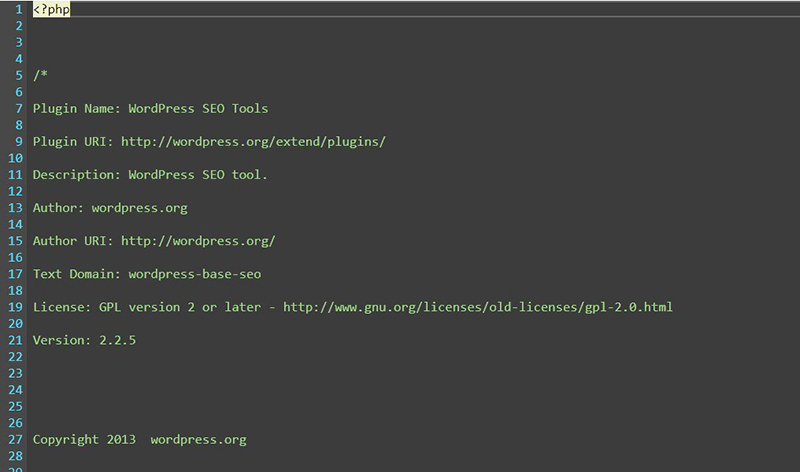When it comes to security journalism, there doesn’t seem to be much actual journalism going on. Instead much of what passes for news coverage these days simply involves repeating the claims of security companies, without doing any fact checking of those claims. This would be a problem just based on the low quality of information coming from security companies, but it looks to us that security companies have realized that in getting coverage what matters is not the truth but saying something that a journalist think they can get clicks by repeating.
A good case in point of journalist simply repeating a security company’s claims we ran across recently was a claimed trending WordPress security issue. Beyond the fact that no evidence was presented that actually backs up the claim that the issue was trending or that the issue was is some way actually significant (and deserved to be covered instead of another issue), something else stood out to us. In the security companies SiteLock’s post on this issue, they claim a “fake” plugin involved in the issue is a forgery of a legitimate plugin:
It is a forgery of a legitimate search engine optimization plugin, WordPress SEO Tools.
In coverage of the issue, that claim was repeated by journalists. Here is how it was reported in the Threatpost’s article:
The fake WP-Base-SEO plugin is a forgery of a legitimate search engine optimization plugin, WordPress SEO Tools.
Here is how it was reported in Infosecurity Magazine’s article:
Dubbed WP-Base-SEO, the plugin is a forgery of a legitimate search engine optimization plugin, called WordPress SEO Tools, according to SiteLock, the firm that originally uncovered the threat.
Finally here how it was reported in SC Magazine’s article, this time without naming the claimed legitimate plugin:
The fake plugin is called WP-Base-SEO and is based on a legitimate SEO module so it is easily overlooked during security scans and seems to be a viable tool by a web team intent on boosting its traffic, said a research team at SiteLock.
The problem with all this is that the supposed legitimate plugin WordPress SEO Tools doesn’t exist. If you do a Google search on the name or on WP SEO Tools it doesn’t bring up results for a plugin with that name. Looking at the Subversion repository that underlies the Plugin Directory, where most plugins are found, there are not entries for a plugin with the slug wordpress-seo-tools or wp-seo-tools.
This should have been something that journalists could have easily checked and if they had look into that they might have realized something was amiss here.
In a quick check over this, something else also stands out to us. While the reason for this issue getting covered is that the “fake” plugin is supposed to be trending, it looks as it might be rather old (or at least based on something that hasn’t been updated in a long time). That is particular noticeable in the screenshot provided by SiteLock of the plugin’s header comments:
The copyright there is 2013, though on its own wouldn’t mean much, what is more noticeable in dating this is this the Plugin URI, which is http://wordpress.org/extend/plugins/. If you visit that URL now you are redirected to https://wordpress.org/plugins/, which is the address of the Plugin Directory. So why would the URL include “extend” when it doesn’t exist the URL you are redirected to? The answer is that the “extend” used to be part of the URL, but that was removed on May 22, 2013 (the switch to HTTPs occurred in 2014). Based on that it is entirely possible this malicious plugin isn’t a new issue, just being promoted that way so that a security company could get coverage.
